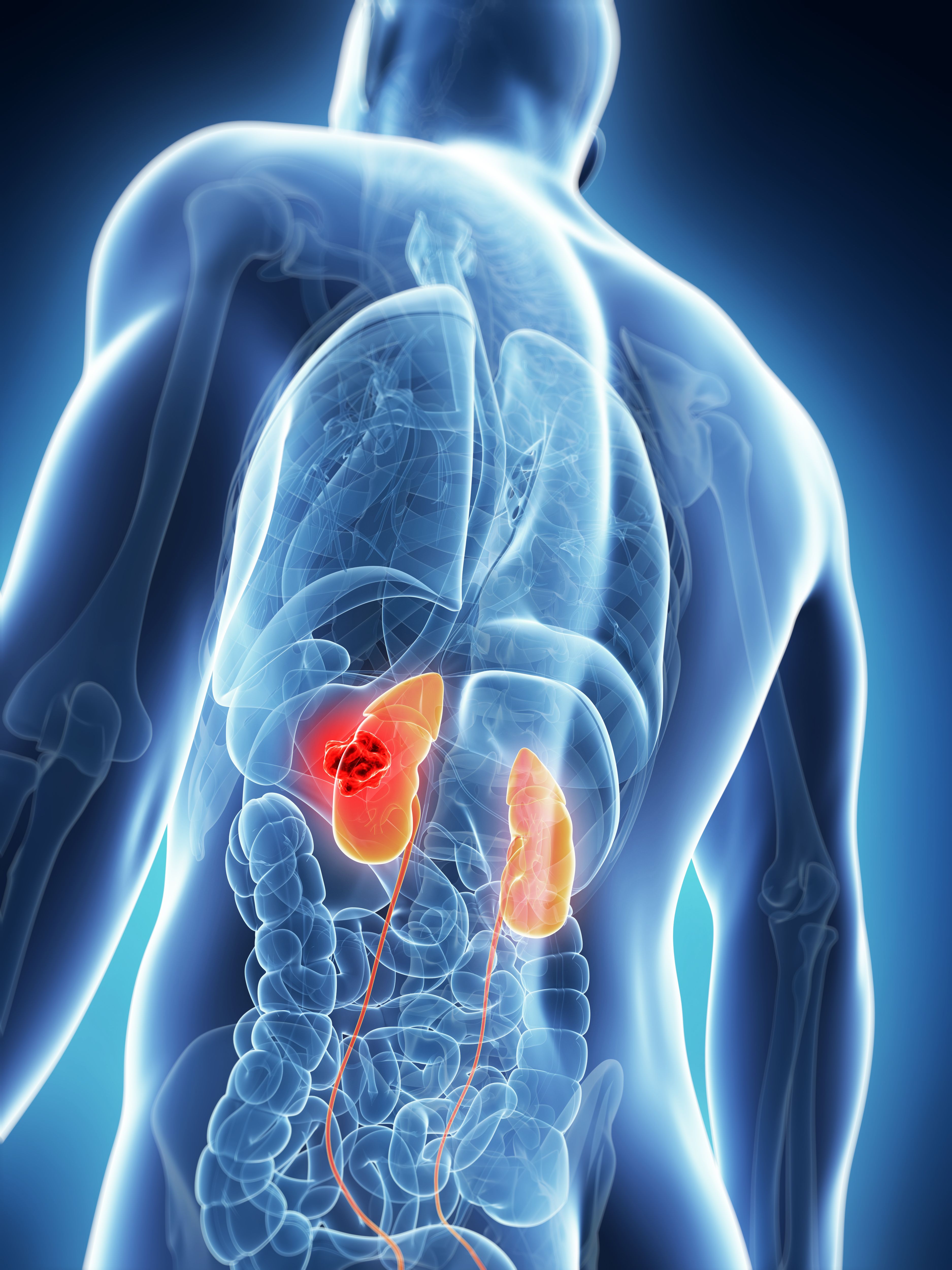Improvement in Efficacy End Points Observed With Belzutifan in Clear Cell RCC
Belzutifan vs everolimus saw increased progression-free survival and objective response rate in patients with pretreated advanced clear cell renal cell carcinoma.
Belzutifan vs everolimus saw increased progression-free survival and objective response rate in patients with pretreated advanced clear cell renal cell carcinoma.

Efficacy such as progression-free survival (PFS) and objective response rate (ORR) was improved when belzutifan (Welireg) was used to treat patients with pretreated advanced clear cell renal cell carcinoma (ccRCC) vs everolimus (Afinitor), according to results from the phase 3 LIFESPARK-005 trial (NCT04195750) presented at the 2023 European Society of Medical Oncology Congress (ESMO).
The trial included 746 adult patients with ccRCC who had Karnofsky Performance Scale scores of at least 70% and were treated with 1 to 3 prior regimens, including a checkpoint inhibitor and VEGF-TKI. Participants were randomized 1:1 to receive belzutifan (120 mg QD; n = 374) or everoliumus (10 mg QD; n = 372) until disease progression or unacceptable toxicity.
Primary end points were PFS per RECIST 1.1 criteria by blinded independent central review (BICR) and overall survival (OS). Second end points were ORR per RECIST 1.1 by BICR, safety, and time to deterioration (TTD) per FKSI-DRS.
Findings showed that at a median follow-up of 18.4 months (range, 9.4-31.7) PFS and ORR were better in the belzutifan arm compared to the everolimus. ORR was 21.9% for the belzutifan arm, compared with 3.5% in the everolimus arm, with belzutifan ORR increasing over time to reach 22.7%.
There was no statistical significance between the 2 arms in OS, at 21 vs 17.2 months, respectively (HR .88).
“Belzutifan demonstrated a significant improvement in PFS with a hazard ratio of .75, and a significant P value. Similar findings were noted at the second interim analysis with a hazard ratio of .74,” study author Laurence Albiges, MD, PhD, medical oncologist and head of the Department of Oncology at Gustave Roussy in Paris, France, said in a presentation of the findings.
At a later follow-up at 25.7 months (range, 16.8-39.1), PFS and ORR data were consistent with those observed in the initial analysis. Complete responses (CR) occurred in 13 (3.5) of patients in the belzutifan arm, compared with 0 patients in the everolimus arm.
Further, the 12-month PFS rates were 33.7% in the belzutifan arm, compared with 17.6% in the everolimus arm, whereas 18-month PFS rates were 22.5% and 9.0%, respectively.
“With regard to subgroup analysis, all subgroups favored belzutifan,” Albiges explained. “[I’d like to] stress the fact that belzutifan demonstrated activity in both intermediate- and poor-risk IMDC categories.”
A total of 22.6% and 5.0% of patients in the belzutifan and everolimus arms were continuing treatment at the time of data collection, whereas 5.9% and 14.7%, respectively, stopped therapy due to any adverse events (AEs). Grade 3-5 AEs occurred in 38.7% of patients in the belzutifan arm, compared with 39.4% in the everolimus arm.
TTD for FKSI-DRS was better for those in the belzutifan arm (median not reached) compared with 12 months for those in the everolimus arm (HR, 0.53; 95% CI, 0.41-0.69; P < .0001).
“Ultimately, LIFESPARK-005 is the first positive phase III [trial] in patients with advanced RCC who had failed immune checkpoint [inhibitors] and VEGF TKIs,” Albiges said.
A final analysis of LIFESPARK-005 will be presented at a future medical meeting.
Reference
Albiges L. Belzutifan versus everolimus in participants (pts) with previously treated advanced clear cell renal cell carcinoma (ccRCC): Randomized open-label phase III LITESPARK-005 study. Presented at: European Society of Medical Oncology 2023 Congress. Oct. 20-24. Abstract LBA88